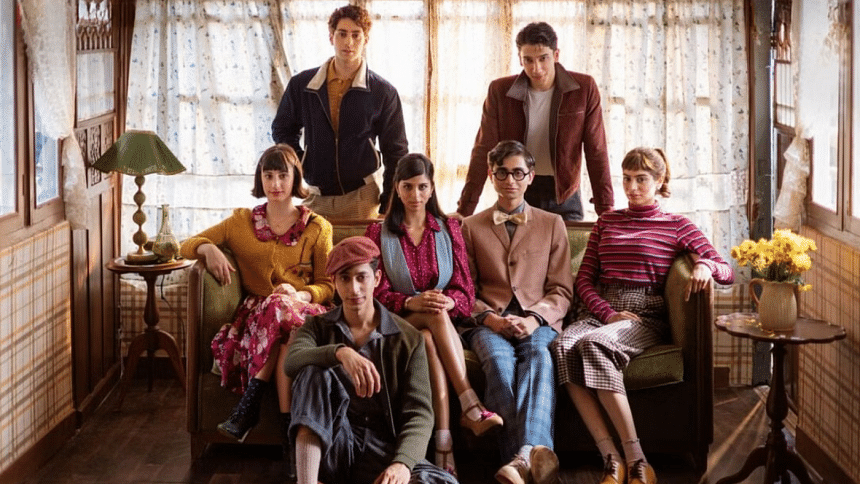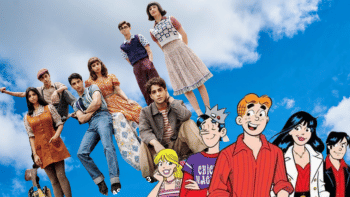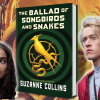Is the whimsy in Zoya Akhtar’s ‘The Archies’ whimsical enough?

In a time when waking up to your phone induces anxiety each morning, The Archies, directed by Zoya Akhtar, promises much needed respite. Streaming now on Netflix, the Indian adaptation of the beloved comics offers a delightful escape from the everyday chaos. Simply brew your favourite coffee, settle into your favourite spot, and let the whimsy take over.
The year is 1964. Archie (Agastya Nanda) is heard giving a tour to some tourists of his hometown, Riverdale, specifically the heart of it all—Green Park. He ends the tour by telling the visitors about The Archies, a local band he believes is destined for greatness, rivalling even The Beatles themselves. It makes sense because the film is a Hollywood-style musical. Canonically in the comics, many of the characters were in a band, but the band is scarcely featured beyond this introduction.
The familiar names of Archie, Betty (Khushi Kapoor), Veronica (Suhana Khan), Jughead (Mihir Ahuja), Reggie (Vedang Raina), Dilton (Yuvraj Menda), and Ethel (Aditi "Dot" Saigal) ring out throughout the film, a deliberate choice that underscores their Anglo-Indian heritage. Belonging to varying degrees of descent from British families who chose to stay in India after independence, these characters find their place within the movie's fictional Indian hill station. This subtle detail bridges the gap between the original American setting of the comics and the Indian adaptation, integrating the characters into their new environment while maintaining their core identities. By grounding the characters in a specific historical context, writers Reema Kagti, Akhtar herself, and Ayesha Devitre Dhillon successfully Indianise these iconic figures.
Echoing the established charm of its source material, The Archies tackles identifiable teenage concerns, from choosing a dance date and navigating romantic entanglements to fighting for beloved local landmarks. While the plot might not venture into uncharted territory, it offers a nostalgic dose of classic comic book storytelling. Additionally, the film cleverly incorporates contemporary political concerns, providing a layer of relevance for its target audience. Beyond the musical numbers and adolescent drama, it encapsulates the anxieties of Gen Z in 2023, from capitalism, free speech, democracy, and open access to public spaces to questions about the future. A particularly memorable scene, featuring Reggie's publisher father talking about the importance of a free press under government scrutiny, perfectly illustrates this point.
However, while Reggie's character arc is effectively linked to the broader narrative through his journalistic endeavours, Ethel's subplot about a job she must choose between two competing hair salons feels disconnected and ultimately fails to deliver on its potential for deeper commentary on the evolving nature of capitalism.
Rooted in the timeless values of Archie comics, the film celebrates the enduring power of friendship and community. It faithfully captures the spirit of the original narratives, showcasing the iconic characters navigating the joys and tribulations of adolescence side-by-side. Their unwavering support for one another forms a bond that transcends individual challenges, offering a sweet portrayal of the strength found in unity.
The film also deviates from the usual high school romance tropes, opting for a refreshingly positive message of kindness and acceptance. A rather random yet enjoyable song highlights how everything is political, from the lunch we eat to the way we dress for school. In a lesser film, this moment would have easily been a catty showdown between two girls vying for a boy's attention. But here, it is turned into a singalong, subtly urging its young viewers to consider the political context of their choices. Planting the seeds of rebellion, this song paves the way for a later scene where the determined group of teenagers bravely stand up to the town management in a fight to save the trees of Green Park.
The dialogues, though, do not quite support the film's intentions, big and small. At one point, Betty's mother says to her, "That tingly feeling you get when you like a boy? That's common sense leaving your body", which is clearly inspired by an internet meme. Though glimpses of cuteness flicker through, such uneven writing prevents The Archies from truly soaring.
The portrayal of Archie neglects exploring the depths of his personality and motivations, painting him with broad strokes. He is torn between Betty and Veronica and harbours aspirations for a life in London. While Nanda initially draws you in with his good looks, his performance ultimately lacks the conviction necessary to carry the film. It is far more entertaining to watch Jughead and Dilton talk about their love for milkshakes and science respectively than it is to watch Archie.

Khan's Veronica, reminiscent of the rich London-returned Tina from the movie Kuch Kuch Hota Hai (1998), has little to offer beyond momentary solidarity towards her less fortunate friends. Kapoor's Betty is a book-loving baker whose father runs the local bookstore. Unfortunately, we are never properly shown what her relationship with him is like, preventing us from truly caring about her outrage when he loses the store. Despite their contrasting appearances, Khan and Kapoor's performances share a strange resemblance, both embodying the same tropes of privilege and indifference. This shared essence is manifested through the recurring use of a specific vocal fry and a perpetually relaxed demeanour, traits often associated with characters who grow up rich—they speak with a certain unhurriedness, suggesting that the world revolves around them. While Khan captures these traits well as Veronica, her performance ultimately is only passable. However, Kapoor's Betty, despite her non-wealthy background, also exhibits this languidness and lack of urgency, raising questions about the film's character development. The two young actors look very pretty performing the choreographed dance moves dressed in cute, era-appropriate outfits, but their acting still has a long way to go.
The adaptation brings the vibrant and quaint world of Riverdale to life impressively. Every frame looks like it came straight out of an Archie comic strip. But the film ultimately falls short narratively in its attempt to balance the classic love triangle of Betty, Archie, and Veronica with a fight against industrial capitalism. The characters, though endearing, remain somewhat superficial, and their conflicts are resolved conveniently, leaving you wanting more from the story. They are defined by their immediate reactions to situations rather than by nuanced internal struggles. Their choices, while propelling the story forward, lack emotional depth, a result of the film's adherence to the fast-paced, plot-driven nature of comic books, which prioritises action and consequence over character introspection. While this approach can be exhilarating in short bursts, it ultimately leaves the characters feeling underdeveloped and the film's emotional impact somewhat muted. The inconsistency between the film's stunning visuals and rushed narrative ultimately hinders its ability to truly connect with the audience.
The rapid and simple conclusion of the movie left me wondering if there is no other way to rehash this tale as old as time. Did Riverdale (2017), the TV series, opt for the only exciting option by turning it into a bizarre, sleepy town murder mystery that eventually even dipped into the supernatural? You watch and tell me.
Shababa Iqbal is a Journalism graduate of Independent University, Bangladesh (IUB) and Sub-editor of ICE Today and ICE Business Times. She likes Jane Austen's novels and Disney movies. Email: [email protected].

 For all latest news, follow The Daily Star's Google News channel.
For all latest news, follow The Daily Star's Google News channel. 











Comments